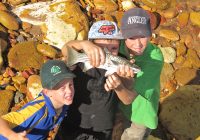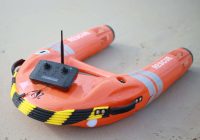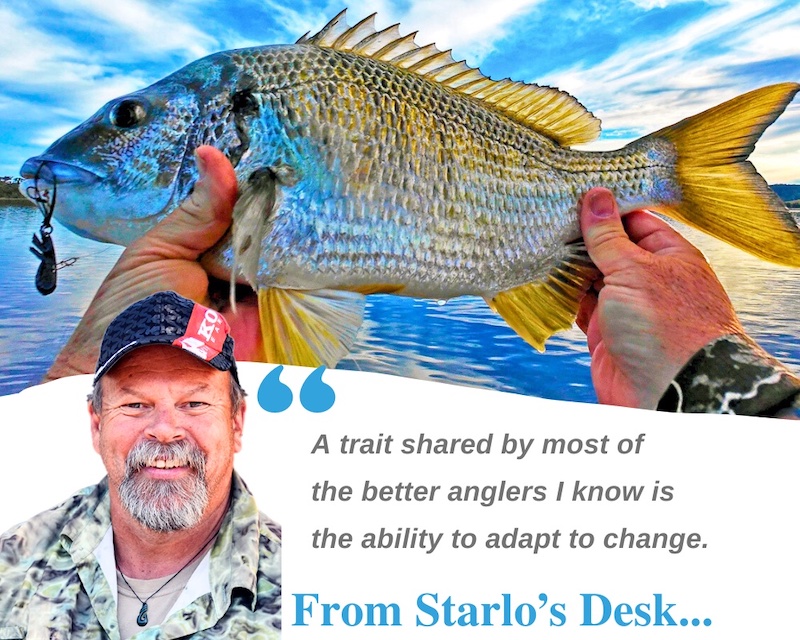
I’m really looking forward to spring! It’s been a long, hard winter in my part of the world, here on the far south coast of NSW. I honestly can’t remember too many colder ones — certainly none with more single-digit overnight temperatures. Sure, we’ve had our share of delightful winter days, too, but most of them kicked off with icy mornings that had the brass monkeys looking for soldering irons!
Short days, low temperatures, frigid waters, and regular bouts of stormy weather accompanied by heavy rain have all conspired to produce tougher-than-usual fishing conditions. Even scoring my normally reliable winter bream action on anything like a regular basis has been akin to pulling teeth. I know I’m not alone in this, as many anglers in the nation’s south have struggled this winter, for a variety of reasons.
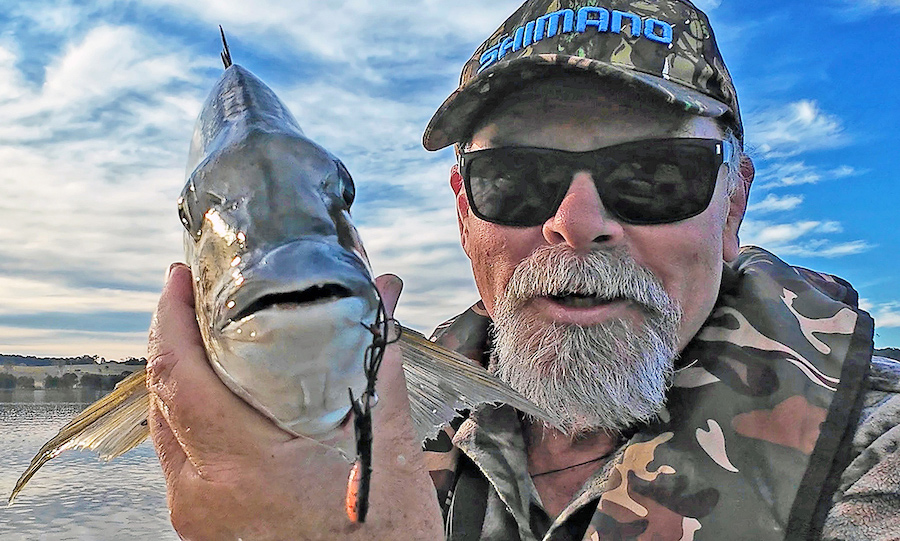
Even the bream fishing was tough for Starlo this winter
I smile wryly at the keyboard pundits who cite this colder-than-average winter as proof that “global warming” is a myth. To be fair, the scientific community don’t do their cause any favours when they use that term. “Climate change” is probably a safer and more accurate description. That change manifests itself in all manner of ways. Some places are becoming wetter, others drier. Some hotter, a few colder. Up north it seems we may now experience less cyclones, but they could be more severe when they do happen, and possibly push further south… and so on it goes.
There are few things as complex as our weather, which provides a daily, real-world demonstration of the vagaries of “chaos theory” at work. The one thing we can be certain about is its uncertainty… and the fact that (despite the claims of some tinfoil hat-wearing conspiracy theorists) we can’t control it!
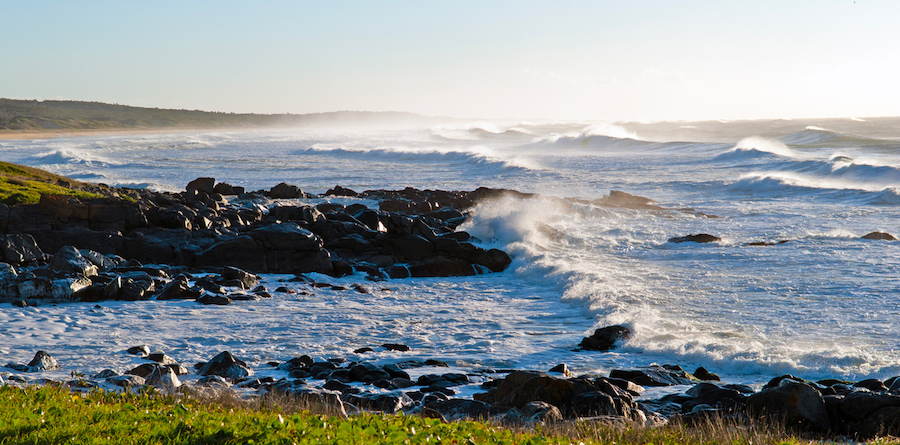
There seemed to be even more storms this winter than most years, although fishers have notoriously selective memories
The other thing that’s obvious to even the most casual objective observer (or should be) is that the earth’s climate is constantly changing across all time scales — from the very short to the extremely long term. Sunspot activity, solar flares, shifting ocean currents, El Nino and La Nina cycles, the Indian Ocean dipole, carbon dioxide levels and a myriad other factors all play their part. But there’s also no question that we’re currently living through a period of accelerated change. The shifts I’ve seen in underlying climate patterns during my own 67 laps around the sun are significant and inescapable.
I’m deliberately steering clear of the debate over the anthropogenic (human caused) aspects of climate change and what we should or shouldn’t be doing about them. Sadly, those hot potatoes trigger far too much political polarisation and vitriol for a humble fishing newsletter. I have my opinions and I’ll keep them to myself. You’re equally entitled to yours. But what we should all be able to agree on is the fact that change happens, and we need to adapt to it.
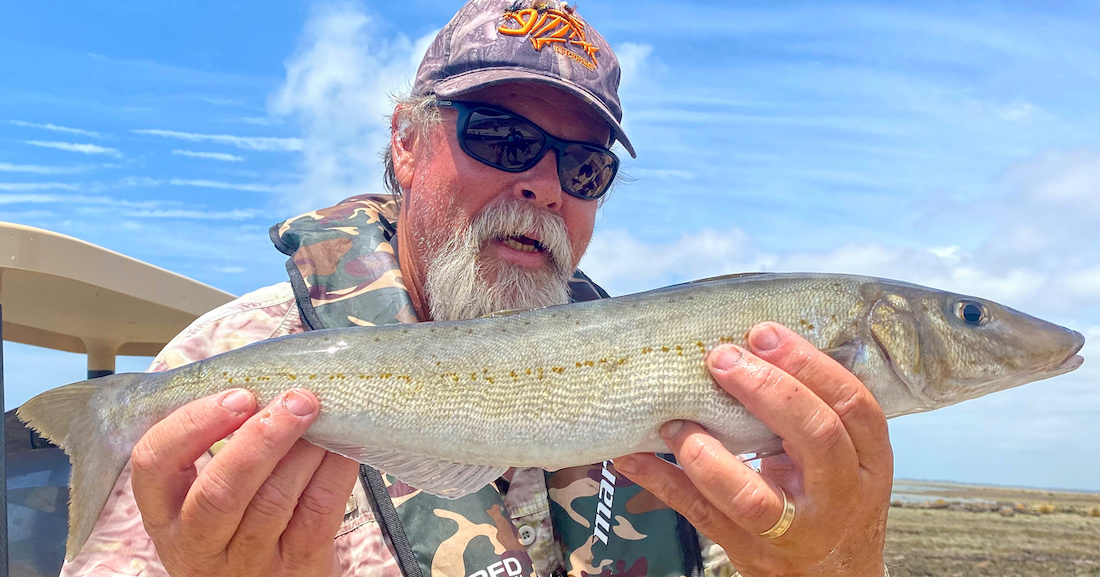
The “poleward migration” of species such as King George whiting is a clear signpost of the changing times we live in.
Arguably the clearest manifestation of change in our marine environments is what’s known as the “poleward migration” of many species. Whether it’s the increasingly regular catches of barramundi in the Brisbane River, or the emergence of vibrant fisheries for snapper, kingfish and King George whiting in Tasmania, it should be obvious to Blind Freddy that there’s something going on. Similarly, on the freshwater front, waterways like Wyangla and Burrinjuck Dams that once supported vibrant trout populations are now almost exclusively home to natives (and, sadly, hordes of noxious carp).
As anglers, we might regard many of these changes as positive, but the flip side of the same coin involves less desirable outcomes, like the dramatic reduction in kelp forests down south, and perhaps even the catastrophic (and ongoing) algal bloom in South Australia. It’s all swings and roundabouts, with plenty of nuance.
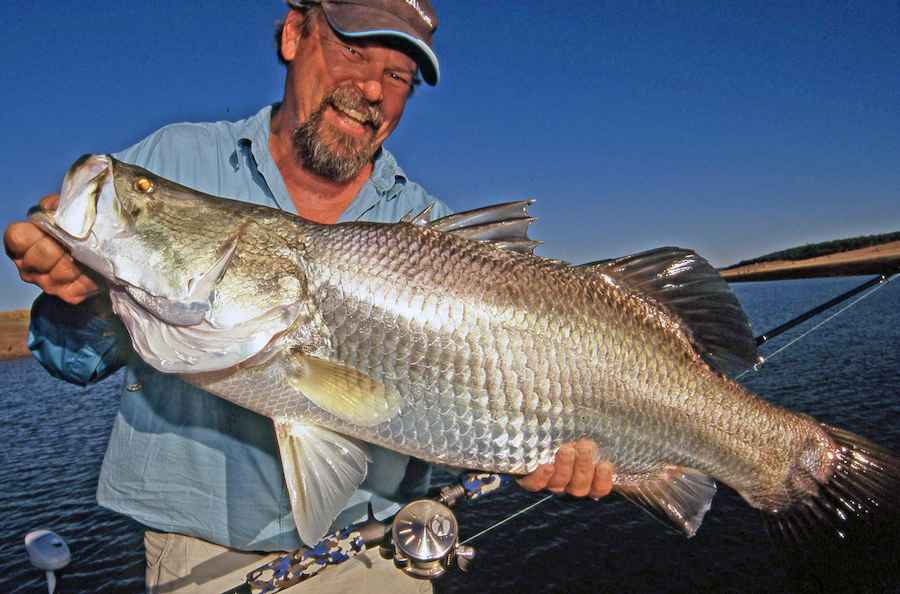
Impoundment fisheries for species like barra didn’t even exist when Starlo began fishing. Adapt or get left behind!
A trait shared by most of the better anglers I know is the ability to adapt to change. Entire new fisheries have emerged in my lifetime (stocked impoundments, deep dropping for swordfish, those big Tassie whiting and so on), while others have all-but vanished. The accepted “seasons” for many species have also shifted. Off my local stretch of coast, it seems there’s no longer a month of the year when yellowfin tuna aren’t present in catch-able numbers. Once upon a time, we hung up our tuna gear in early June and didn’t dust it off again until at least November.
Being flexible and adapting to change — no matter its source — is clearly a hallmark of happier, more consistently successful fishers. Bemoaning the demise of “the good ol’ days” is akin to that metaphorical old man yelling at a cloud, or King Canute commanding the tide to halt… and just about as effective.
Until next time, enjoy spring, embrace change and Tight Lines.
![]()
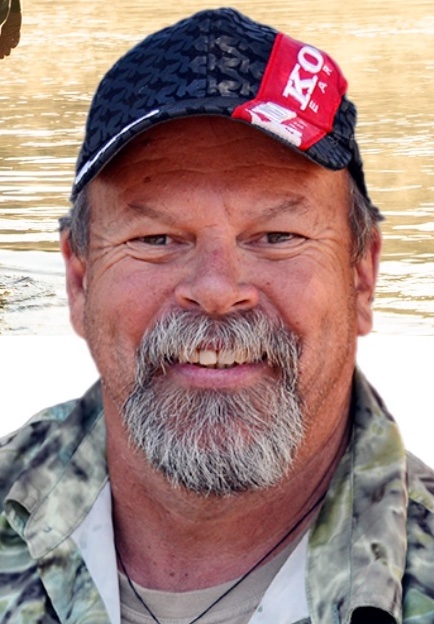
Steve (Starlo) Starling is an Australian sports fishing writer and television personality who has appeared in many of Rex Hunt’s Fishing Adventure programs on the Seven Network.
He has published twenty books on the subject of angling, as well as thousands of magazine articles.
Starlo has scripted and presented many instructional videos and DVDs, and been a Researcher and on-screen presenter for a number of Australian angling and outdoor television programs.
Follow Starlo Gets Reel on Youtube for some of the best, educational and most entertaining fishing viewing on-line.
Click on the banner below for a direct link to the Channel.







